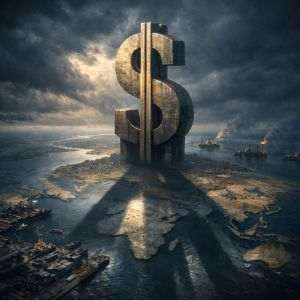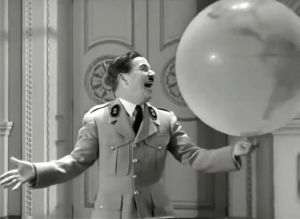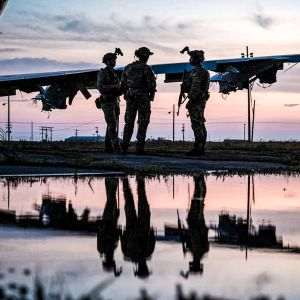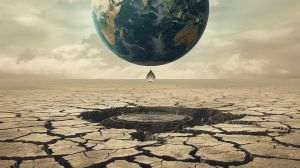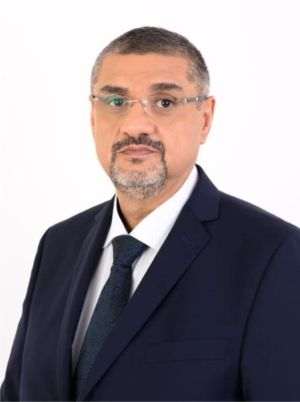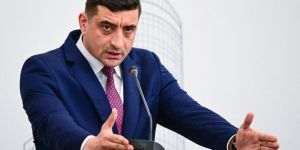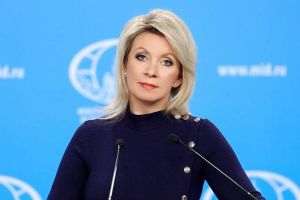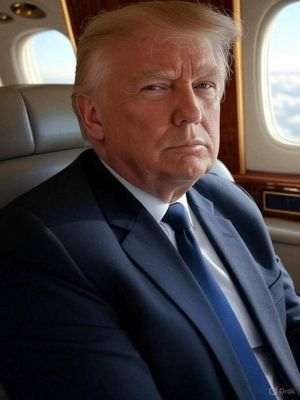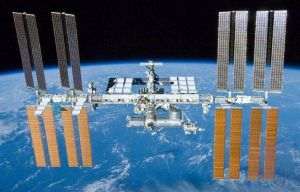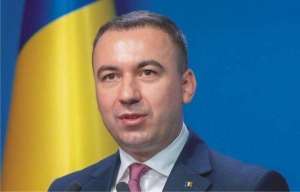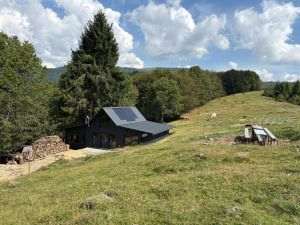"Russia should be treated with decency", and the United States of America should not be allowed to "dictate" the policy of the European Union when it comes to Moscow, Jean-Claude Juncker, the president of the European Commission, said last Friday, precisely during a trip to Germany. In whose name was this gentleman talking? Was he speaking for the whole Union or only for those European countries that have concrete interests when it comes to their relationship with Russia?
It is an obvious fact that for a while now, arguments in the European family have escalated between the relatives in the West and those in the Center and the East. There is shouting over serious matters - the issue of the refugees, the relationship with Russia, the supply of natural gas and the afferent pipelines, the conflict in Ukraine -, but frequently due to petty reasons, which concern the sharing of the wealth. Up until the issue of the mandatory refugee quota, the European Commission seemed to act like a mediator and that it was trying to deal with the issues in a - "relatively transparent" manner, despite the sordid stench emanated by the political axiom that Jean-Claude Juncker nonchalantly uttered four years ago, when he said that "when things get serious, you have to lie".
Germany and France, countries which have a tradition in music, want to continue leading the European choir, to write the sheets for the Eastern and Central Europeans, and to discreetly set the tone for the other Western countries. In sociology, what these two countries want to prevent is called "the dispersion of the authority" and it occurs upon the creation of large groups or of crowds - inherently, the increase in the number of members of the European Union has been accompanied by the risk of the newcomers eventually contesting the political authority and the economic interests of the "founding parents". The German-French couple, seconded by its close historical relatives, sincerely believes that it represents the EU to a higher degree than the former communist states that joined it later.
Had Jean-Claude Juncker honestly carried it out his mandate as president of the European Community, he should be asking the Western members of the Union to show decency in their intra-community relationship with the Eastern members, not at all with Russia. Furthermore, it is now obvious that the apple of discord is also the relationship with the US, which the central and Eastern-European countries consider a vital alliance, while to the "heavyweights" in Western Europe it has come to be annoying and detrimental to their own interests.
The example of the failed sale of the two "Mistral" warships is telling: France was ready to deliver them, even though their becoming part of the Russian military navy would have allowed Russia to checkmate all of the neighboring NATO states in the Black Sea, starting with Turkey, which has the biggest and most modern military fleet in the region. The US has required the canceling of the initial deal, but it was also the US that subsequently recommended an alternative buyer - Egypt, which it has essential leverage on: the Egyptian armed forces are financed by the American federal budget with over one billion dollars a year.
And on the economic side, the behavior of the Western countries in relation with the central-eastern European ones is indecent and it is found in the argumentation made by the South-Korean economist Ha-Joon Chang in his best-seller, "The bad Samaritans. The myth of the free-exchange and the secret history of capitalism". Heavily developed countries act with the goal of keeping the advantages they have gained over time, by juggling with tools such as rights of ownership and protectionist fees. Their history is rife with government intervention, but the same countries now plead in favor of the free trade in the international markets. The EU in particular has set itself up as a champion of environmental protection on a global level, in which context the policies on the matter can be understood as being a part of the collection of means by which the Western countries are keeping their lead over the rest of the world, including the Eastern members of the Union.
One example of protectionism derived from the environmental protection policies has been snuck into the provisions of the Directive 2009/128/CE of the European Parliament and of the Council, "for the setup of an environment of Community action for the durable use of pesticides", which led to the prohibition of airborne spraying of these substances. The European directive in question has been transposed in the domestic legislation through Emergency Government Ordinance no. 34/2012, which led to the drastic limitation of the use of utility aviation in agriculture, to just a few exceptional situations.
There are plenty of arguments that can support the hypothesis that this directive has been sized by the specifics of Western agriculture and that it has disregarded the situation in Central and Eastern Europe, a region which is far more economically and socially dependent on that sector than Western Europe - through the larger share of the population employed in agriculture and through the greater impact it has on the GDP.
In the European Union, there are no significant manufacturers of aircraft usable in agriculture. Only Poland had a tradition in the manufacturing of that kind of such aircraft, with the most successful models being M18 Dromader and PZL-106 Kruk. The first is still being made at the plant in Mielec, which is now owned by American companies Sikorsky Aircraft Corporation and United Technologies Corporation. The second one was made at a factory near Warsaw, currently owned by EADS; theoretically, it is still in production, in two modified versions, but it is no longer part of the current offer of the European company. As for helicopters, the only manufacturer present on the niche of utility aviation is Airbus Helicopters, but agriculture is a marginal market segment for the "European-French company".
On the other hand, the global market is dominated by the aircraft makers from the US and the former soviet space. Especially in the Central and Eastern area of the EU, utility aviation meant predominantly aircraft made in Russia (the Kamov Ka-26 helicopter), Ukraine (the Antonov An-2 aircraft) and Poland. Besides, the diverging routes that the two factories in Poland have followed perfectly illustrate the divide between aviation and agriculture: the one owned by American companies is still manufacturing aircraft, while the one owned by EADS no longer sells.
On the other hand, the European production of agricultural machines is concentrated in Germany (27%), Italy (17%) and France (14%), representing one third of the global market. In particular, Germany is the leader when it comes to the manufacturing of spraying machines, followed by Italy. The application of directive 2009/128/EC led to the creation of a large market for ground-based spraying equipment, while at the same running utility aviation in Central and Eastern Europe into the ground. In Western Europe, the impact of the new legislation was insignificant, because over there the median farm surface is approximately 400 hectares and family owned farms are predominant, meaning that aircraft are rarely used for spraying the crops.
In Romania, the utility aviation meant what was left of the fleet created during the communist period, as well as the aircraft acquired by the private operators, using their own funds. The existence of that technical base would translate into savings for the budget of the local farmers, especially the major ones that operated on the grains segment, who were thus freed from the burden of additional investments and for whom the version of airborne crop dusting was beneficial, as it became quicker and cheaper as the size of the plots of land increased, compared to the alternative of using tractors outfitted with dusting installations.
Once applied, Directive 2009/128/CE, and Government Emergency Ordinance 34/2012 respectively, have made it mandatory for central and Eastern European farmers to invest in ground-based crop spraying installations, either using their own funds, or by accessing European grants, in which case of course, the acquired product would have to originate from the EU, meaning predominantly from Germany, Italy and France. On the segment of equipment meant for agriculture, the three countries have a mostly integrated circuit, because, with almost no exception, the machinery in question incorporates parts made by German, Italian and French companies, that have various forms of cooperation.
The environmental protection desideratum claimed by Directive 2009/128/CE failed from the start, since the European lawmaker felt the need to intervene radically on the spraying tools and less on the chemical substances themselves. The current list of pesticides approved at the level of the EU is full of chemicals with a high degree of toxicity, which, regardless of the way they are sprayed, will still end up in the soil, and from there, into the agricultural produce. For example, the third pesticide approved is Lambda-cyhalothrin, which has very high half-lives: 7 days in water, 5 days in plants and 30 days in the soil. From the same perspective of environmental protection, also ignored was the fact that a difference in the levels of pesticide pollution existed between Western and Central Europe, to the benefit of the latter. Historically speaking, in the East, the use of chemicals for the optimization of farming (as well as the "flooding" of foods with preservatives), began later, a situation which nowadays represents an ecological advantage, in relation to the consumers' legitimate preference for "clean" fruits and vegetables.
When corroborating these legislative practices at the level of the European Union, with the statements recently made by European politicians, such as Jean-Claude Juncker, Angela Merkel or Francois Hollande, a question legitimately arises: what is the difference between the lies and hypocrisy that Brussels is dusting over the member states and the "controlled democracy" applied on a doctrinary level from Moscow? Hasn't the selfishness with which some Western countries look towards the Eastern "colonies", by being too adamant that they remain at a level of political infantilism, become far too strident?
Whatever they may be, the future proposals of the European Commission need to be examined carefully, by every member state of the Union, in terms of the real intentions behind them, of their immediate and later goal, when it comes to their formal and informal beneficiaries. The European Union has come to the unfortunate point where it is precisely its " founding parents" that are undermining the solidarity between the members and the legitimacy that derives from the fundamental notion of shared interests. For Romania, the strategic surprises that can come "furtively" from the West, are just as dangerous as the recurring and obvious ones coming from the East.

